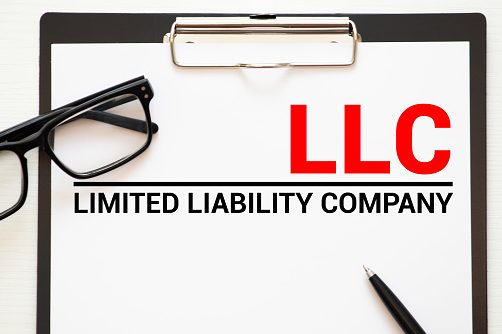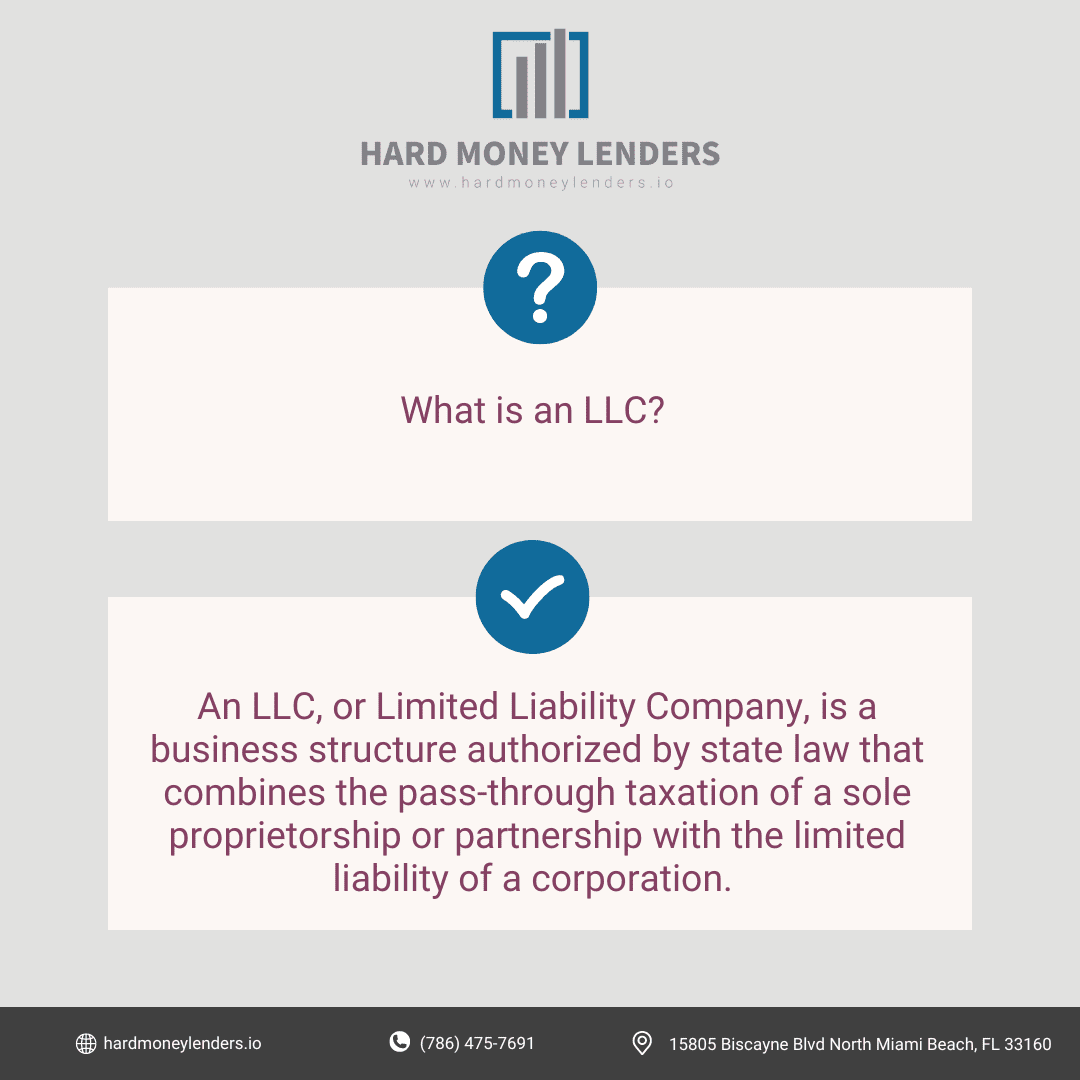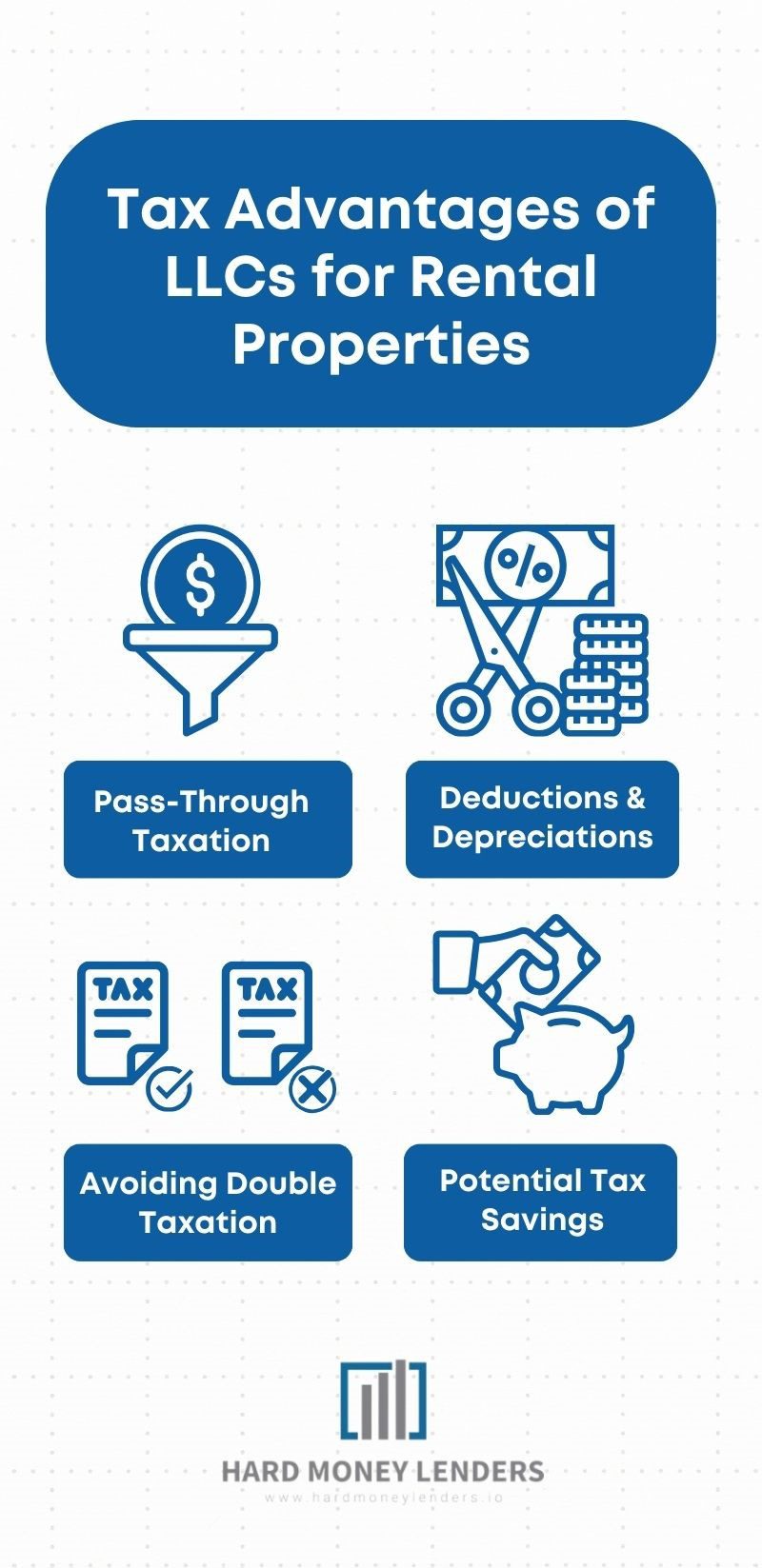What’s The Difference Between Real Estate Trust & LLC
Imagine that you have found your dream real estate property and cannot wait to put your name all over it. So, you look for a source of funding either through an experienced personal money lender, credit unions or other sources. This may not be much of a hustle compared to the liability you are bound to once you own the property. Owning a property and choosing to rent it out comes with a lot of liabilities to you as the property owner. Therefore, we highly recommended that you shield yourself from these liabilities by purchasing it under the name of another entity through an LLC (limited liability capacity) or real estate trust. The next big question then is what’s the difference between real estate trust & LLC?
What is an LLC?

LLC (limited liability capacity) is a business structure that shields personal assets of a property owner from legal or financial obligation. This implies that LLC provides a clear distinction between personal assets and business assets, and in the occurrence of a lawsuit against the property, your personal assets remain untouched.
LLC can be owned individually or partially through partnerships and corporations. It is not a rigid structure that is constrained by the initial size of the members of the LLC, it is able to scale up and down.
How do you set up an LLC?
 If you are a property owner and would like to pursue the LLC route, we advise that you do so as soon as you purchase the property. This is because once a property is under your name, you become liable to the property. There are 5 general guidelines that should be followed. It is important to note that these guidelines vary based on the regulations of the given state, be sure to check with your state before setting up an LLC.
If you are a property owner and would like to pursue the LLC route, we advise that you do so as soon as you purchase the property. This is because once a property is under your name, you become liable to the property. There are 5 general guidelines that should be followed. It is important to note that these guidelines vary based on the regulations of the given state, be sure to check with your state before setting up an LLC.
- Choose a non-existent business name.
- Choose a registered agent that receives official documents on behalf of your LLC.
- Prepare the LLC operating agreement.
- File an “Article of Organization” document with the state.
- Obtain any necessary business licenses and permits.
Benefits of LLC
As a property owner, choosing an LLC comes with the following benefits:
Liability Protection
The increasing popularity of LLC is rooted in its primary benefit, limited liability. As stated above, LLC ensures that your personal assets are protected from any property debts or lawsuits even if the property assets cannot afford to pay the judgement.
Management Flexibility
LLC provides the option of anonymity through management flexibility. The property’s owner is not required to handle day-to-day operations of the property’s management as they can allocate this responsibility to an agent or manager. The agents and managers are then required to report to the property owner of all operations.
This is profoundly beneficial to individuals who want to keep a low profile as well as keep their investments on the low.
Tax Treatment for LLCs
Limited Liability Companies (LLCs) offer versatile tax treatment options, which can be tailored to fit the needs of the business owners. Here’s a detailed comparison of the different tax classifications available to LLCs.

- Sole Proprietorship: For single-member LLCs, the IRS automatically treats the LLC as a sole proprietorship. This means the business is not taxed separately; instead, the owner reports income and expenses on their personal tax return using Schedule C. The income is subject to self-employment taxes, which cover Social Security and Medicare.
- Partnership: Multi-member LLCs are typically treated as partnerships by default. The LLC itself doesn’t pay taxes directly; instead, it files an informational return (Form 1065) and provides each member with a Schedule K-1, detailing their share of the profits or losses. Each member then reports this information on their personal tax returns. This structure avoids double taxation but requires careful tracking of each member’s share of the income.
- Corporation (S-Corp or C-Corp): LLCs can elect to be taxed as a corporation by filing Form 8832. If they choose to be taxed as an S-Corp (by also filing Form 2553), the income, deductions, and credits pass through to the shareholders, who report them on their personal tax returns. S-Corps offer potential tax savings on self-employment taxes. Alternatively, if an LLC opts for C-Corp taxation, the company pays corporate income tax on its profits, and shareholders also pay taxes on any dividends received, leading to double taxation. However, C-Corps can offer benefits like the ability to retain earnings and reinvest them in the business.
Financing Considerations for LLCs
Forming an LLC can significantly impact the ability to secure financing for real estate investments. One of the primary challenges is that lenders often view LLCs as higher-risk borrowers compared to individuals. This is because LLCs are separate legal entities, which may not have the established credit history that individual borrowers do.
- Creditworthiness: Lenders typically scrutinize the creditworthiness of the LLC’s members, as the LLC itself may not have a credit history. This means that personal credit scores and financial histories of the LLC’s members will heavily influence loan approval and terms.
- Loan Terms: Financing through an LLC can sometimes result in higher interest rates and less favorable loan terms compared to individual borrowers. Lenders might require personal guarantees from the LLC’s members, which can mitigate some risks but also diminish the liability protection that an LLC offers.
- Benefits: On the upside, an LLC can enhance financing opportunities by pooling resources and creditworthiness among multiple members. This collective approach can sometimes offset individual shortcomings and provide more robust financial backing to secure loans.
What is a Real Estate Trust?
Now that we have looked at LLC as an investment vehicle, let us dive into another investment vehicle, real estate trust.
A real estate trust is a legal vehicle that passes assets in which trustees hold the title to the property for the benefit of one or more beneficiaries. This option is favourable for commercial and multifamily properties, it is also widely used for estate planning by an owner.
What are the different types of RETs?
There are three different types of RETs:
1. Equity RETs -majority of RETs are publicly traded equity RETS. They own and operate income-producing real estate. Revenue is generated through renting out the property not reselling of the property.
2. Mortgage RETs – they lend money to real estate owners directly through mortgages and loans or indirectly through mortgage-backed securities.
3. Hybrid RETs – these are a combination of the strategies used in equity RETs and mortgage RETs.
Benefits of Real Estate Trusts
As a property owner choosing real estate trusts over LLC have the following benefits:
Multiple Ownership
Trusts are useful in documenting the relationship and the ownership interests of all owners in a consolidated fashion. This makes it useful for larger real estate investments that house multiple owners.
Estate planning
Trusts are beneficial to individuals who want to evade estate tax on their investment properties. They make it possible by transferring it to their heirs under the real estate trust.
The downside of real estate trusts is the high frequency of change of the rules around how much an individual should put in the trust for estate planning. Furthermore, the partners will also have modifications that they will need to be added in the trusts. These changes require financing to make them effective in additional to the original fees.
Tax Treatment for Real Estate Trusts
Real Estate Trusts, particularly Real Estate Investment Trusts (REITs), are subject to different tax rules that can offer significant advantages:
- Income Distribution Requirement: REITs must distribute at least 90% of their taxable income to shareholders annually in the form of dividends. This requirement allows REITs to avoid paying corporate income taxes on the distributed income, effectively making them pass-through entities like LLCs.
- Dividend Taxation: Dividends paid by REITs are generally taxed as ordinary income to the shareholders, although they may qualify for the Qualified Business Income (QBI) deduction under Section 199A, which can reduce the effective tax rate on these dividends.
- Capital Gains and Losses: When a REIT sells property at a gain, the capital gains are passed through to the shareholders, who report them on their personal tax returns. This can result in lower tax rates on long-term capital gains.
- Tax-Deferred Exchanges: Both LLCs and REITs can take advantage of Section 1031 like-kind exchanges, allowing them to defer capital gains taxes when they reinvest the proceeds from the sale of a property into a similar property.
Financing Considerations for Real Estate Trusts
Real estate trusts, such as Real Estate Investment Trusts (REITs) or family trusts, also influence financing options and terms, but in different ways compared to LLCs.
- Lender Perception: Lenders generally perceive real estate trusts as less risky compared to LLCs, particularly if the trust has significant assets and a solid management structure. Trusts can offer greater financial stability and a clearer asset base, which can be appealing to lenders.
- Loan Terms and Options: Financing through a real estate trust can lead to more favorable loan terms, including lower interest rates and longer repayment periods. Trusts often have established relationships with mortgage providers, facilitating smoother and potentially more advantageous loan processes.
- Challenges: One potential challenge is the complexity of trust structures. Lenders may require extensive documentation to understand the trust’s setup, beneficiaries, and management. This can slow down the financing process but generally does not impede it significantly if the trust is well-organized.
Insurance Implications
Insurance for LLCs
Properties held in an LLC require specific types of insurance policies to protect both the asset and the LLC members.
- General Liability Insurance: This is crucial for protecting the LLC from lawsuits or claims arising from accidents, injuries, or damages that occur on the property. It covers legal fees, medical expenses, and potential settlements.
- Property Insurance: Essential for safeguarding against physical damage to the property from events like fire, storms, or vandalism. It ensures that the LLC can cover repair or replacement costs.
- Umbrella Insurance: Provides additional liability coverage beyond the limits of standard policies. This is particularly useful for LLCs with multiple properties or higher risk exposures.
- Importance: These policies are important because they not only protect the LLC’s assets but also preserve the personal assets of the members by maintaining the liability shield provided by the LLC structure.
Insurance for Real Estate Trusts
Insurance considerations for properties held in real estate trusts are somewhat similar but tailored to the unique structure and needs of trusts.
- Liability Coverage: Real estate trusts require comprehensive liability insurance to cover potential claims related to injuries or damages occurring on trust properties. This is crucial to protect the trust’s assets and beneficiaries.
- Property Insurance: Similar to LLCs, trusts need property insurance to protect against physical damage. However, trusts might have additional requirements based on the number and type of properties held.
- Trust-Specific Policies: Depending on the nature of the trust (e.g., REITs), specialized insurance policies might be necessary. For instance, REITs often need policies that cover broader risks associated with commercial properties and large portfolios.
Importance: Proper insurance is vital for protecting the trust’s assets and ensuring that the trust can meet its obligations to beneficiaries. It also provides peace of mind to trustees and beneficiaries, knowing that potential risks are mitigated.
Management and Control
Management Structures in LLCs
LLCs offer flexibility in how they are managed, catering to the needs of different types of business owners:
- Member-Managed LLCs: In this structure, all members participate in the day-to-day operations and decision-making processes. This is a common choice for small businesses and family-owned operations where active involvement from all owners is desired. Each member has the authority to act on behalf of the LLC, which can streamline operations but requires strong communication and agreement among members.
- Manager-Managed LLCs: Here, the members appoint one or more managers to handle the LLC’s daily operations. The managers can be members or external parties. This structure is often preferred by larger LLCs or those with passive investors who do not wish to be involved in everyday business activities. The managers have the authority to make decisions, while the members take on a more oversight-oriented role.
Management Structures in Real Estate Trusts
Real Estate Trusts, including Real Estate Investment Trusts (REITs) and other forms of trusts, typically have more rigid management structures:
- Trustees: In a real estate trust, trustees hold legal title to the property for the benefit of the beneficiaries. The trustees are responsible for managing the trust’s assets, including making investment decisions, handling financial transactions, and ensuring the trust operates in accordance with its governing documents and applicable laws. Trustees have a fiduciary duty to act in the best interests of the beneficiaries.
- Beneficiaries: Beneficiaries have equitable ownership of the trust’s assets and are entitled to the income generated by those assets. They typically do not have a role in the day-to-day management of the trust but can influence major decisions depending on the terms of the trust agreement.
- Management Company (for REITs): Many REITs hire external management companies to handle the operations of the trust’s properties. These companies are responsible for property management, leasing, maintenance, and other operational tasks. This arrangement allows the REIT to leverage professional management expertise while the trustees and beneficiaries focus on oversight and strategic decisions.
Which one is better, LLC or Real Estate Trusts?
Having outlined the details and benefits of both LLC and Real Estate Trusts, it is clear that both are beneficial but are tailored to suit different groups and individuals. Trusts are beneficial for commercial and multifamily properties however LLC is far more a beneficial structure. LLC provides flexibility, anonymity and reduced liability. It also reduces taxes imposed to you as a property owner.
Regardless, we advise that you place your property in an LLC, real estate trust or any other investment vehicle without delay after purchase of the property.

Yuval Elkeslasi is a distinguished professional in the finance industry, celebrated for his pioneering strategies and significant contributions as the leader of Hard Money Lenders IO. Hailing from Queens, New York, Yuval has built an impressive career, transforming the lending landscape through his expertise and visionary approach. Yuval Elkeslasi
attended Florida State University, where he obtained a bachelor’s degree in Finance. This academic foundation provided him with the necessary skills and knowledge to thrive in the competitive financial arena. Yuval’s tenure at Hard Money Lenders IO is marked by numerous pioneering accomplishments. He has introduced a variety of loan programs designed to cater to specific client requirements, including fix and flip loans, new construction financing, cash-out refinancing, rental property loans, and specialized financing for luxury items like yachts. Among Yuval’s significant achievements is securing an $8 million construction loan for a spec home builder in Port Royal, Naples. He also orchestrated the financing for a prestigious 72’ 2024 Viking Convertible yacht valued at $7.2 million. These transactions demonstrate Yuval’s adeptness at navigating complex financial landscapes and delivering exceptional results.
